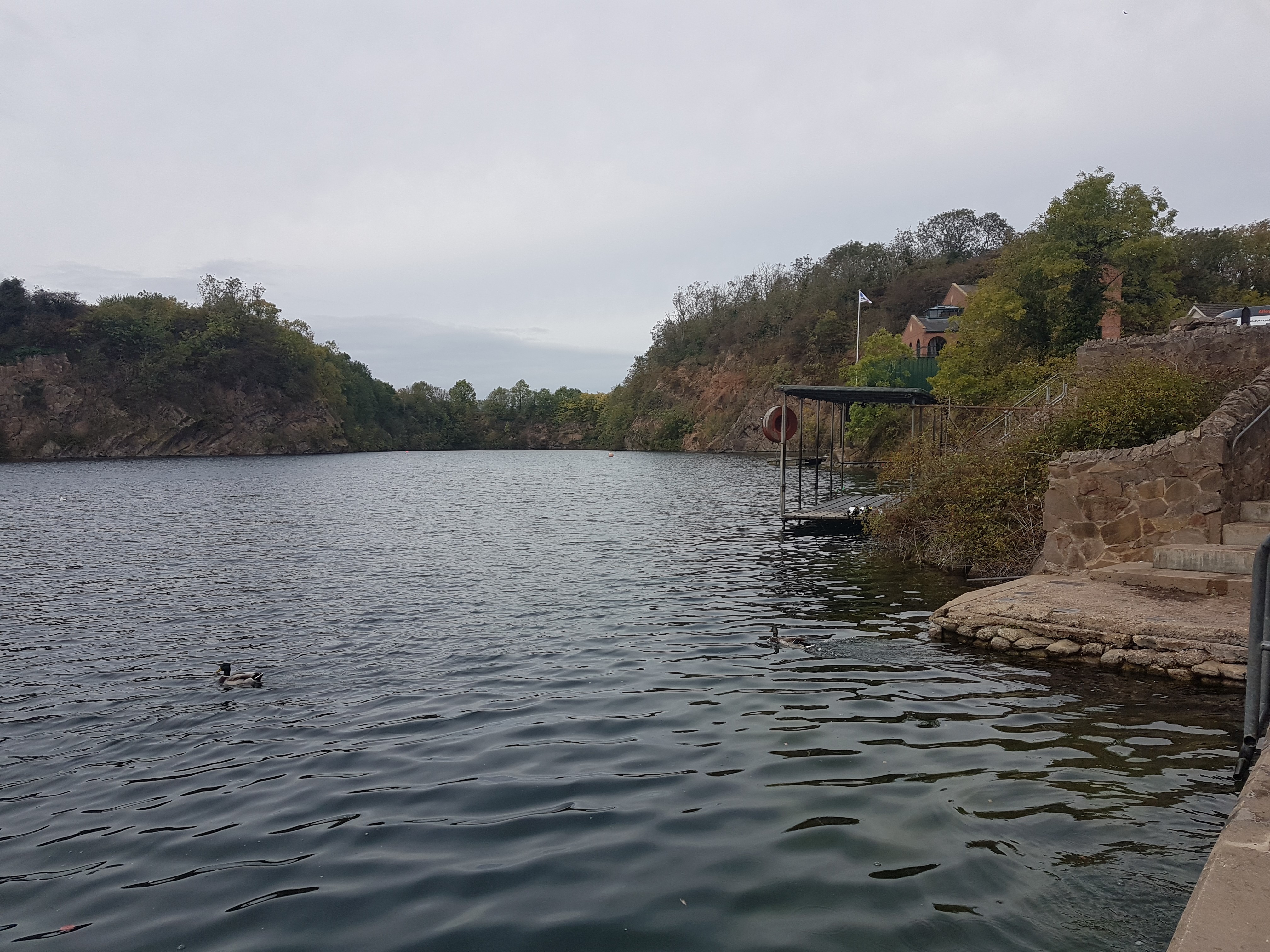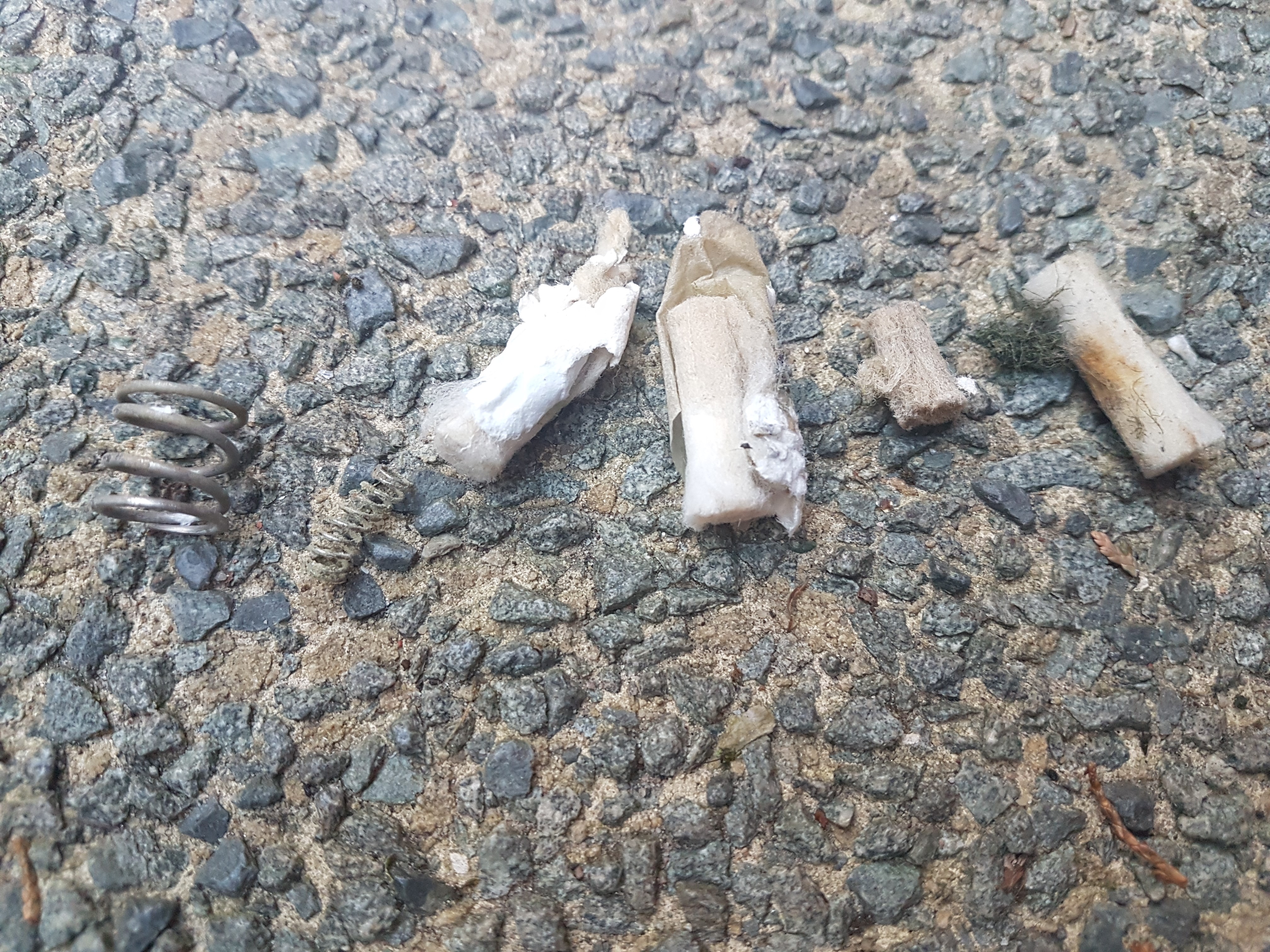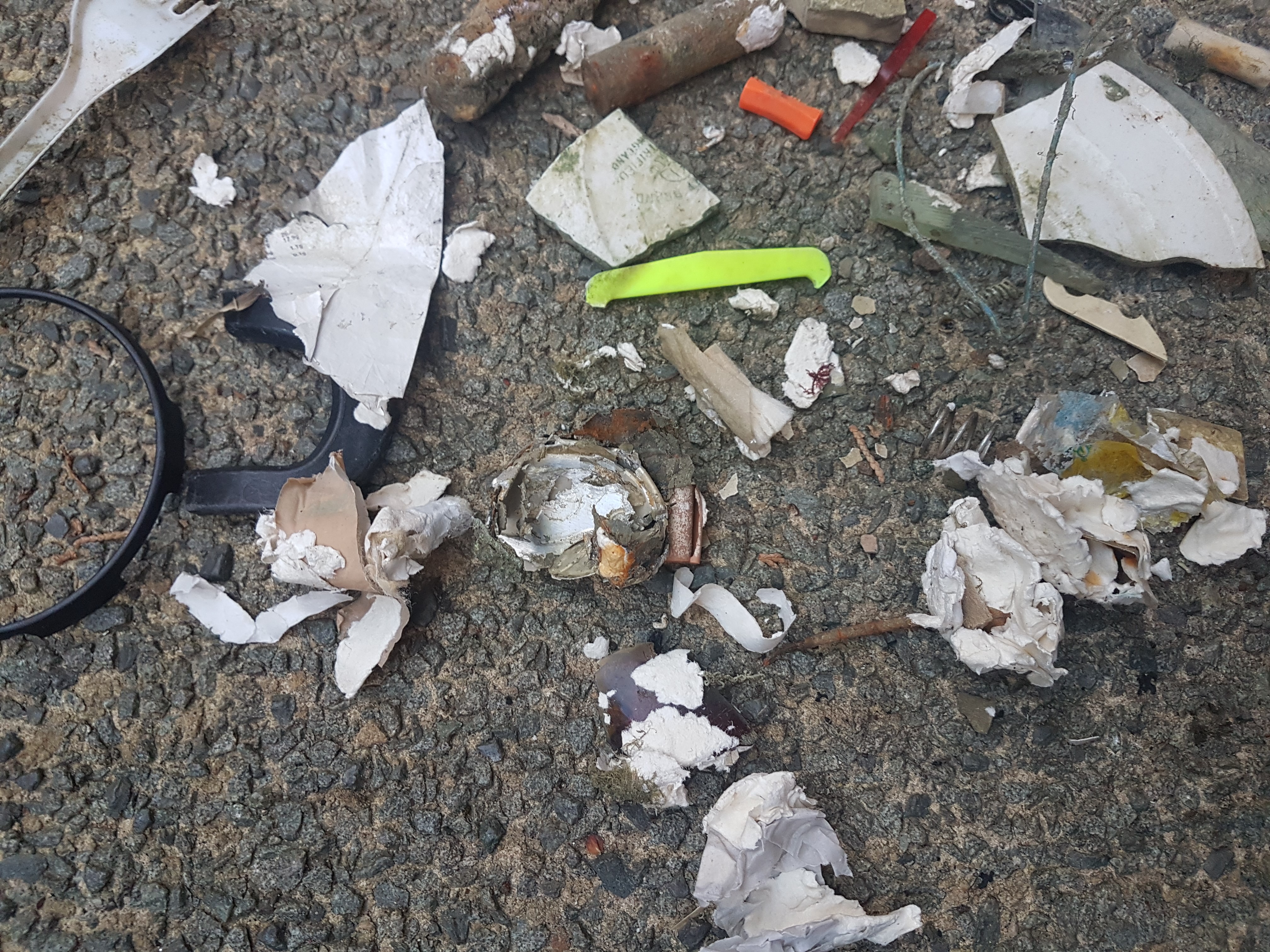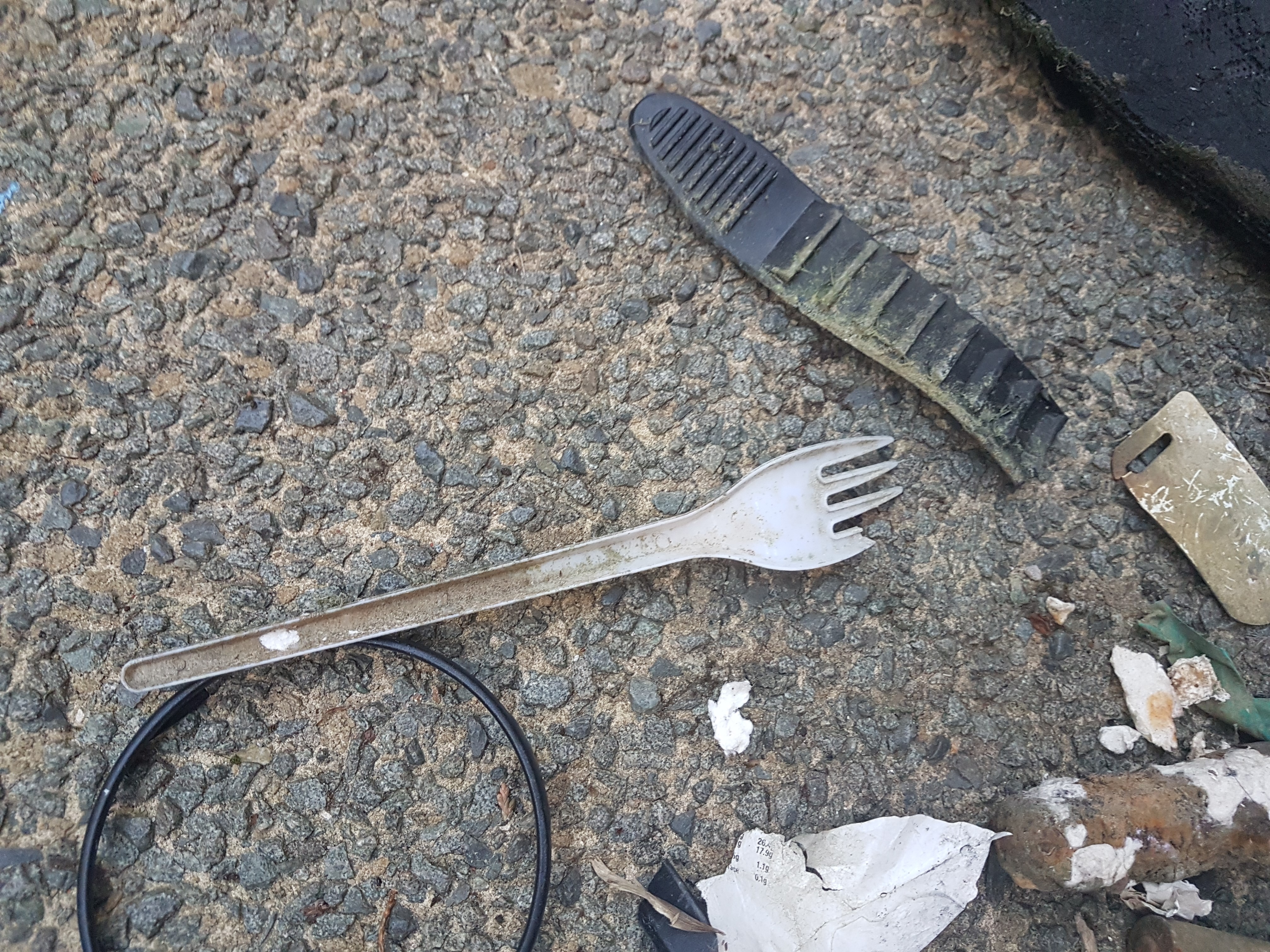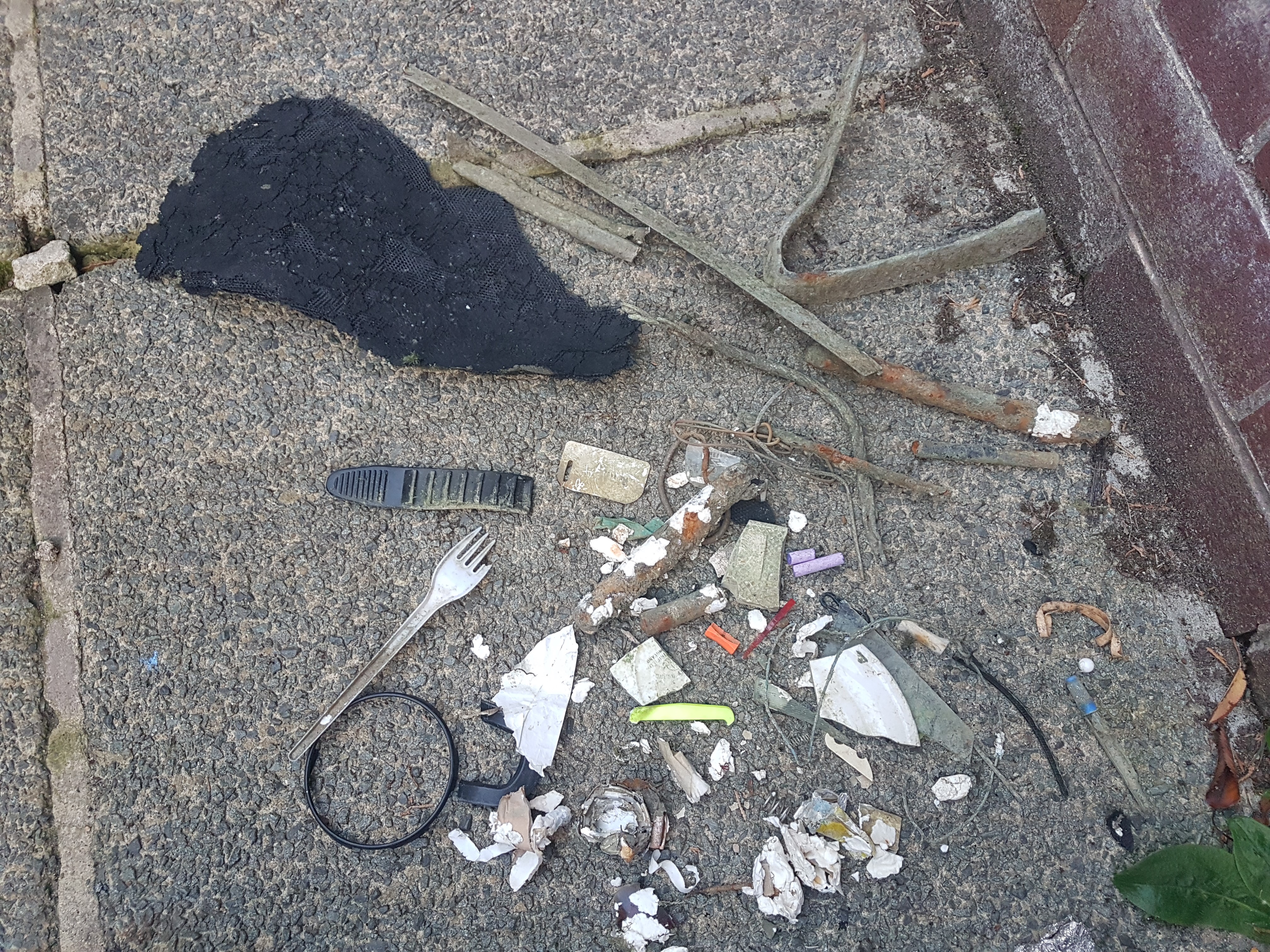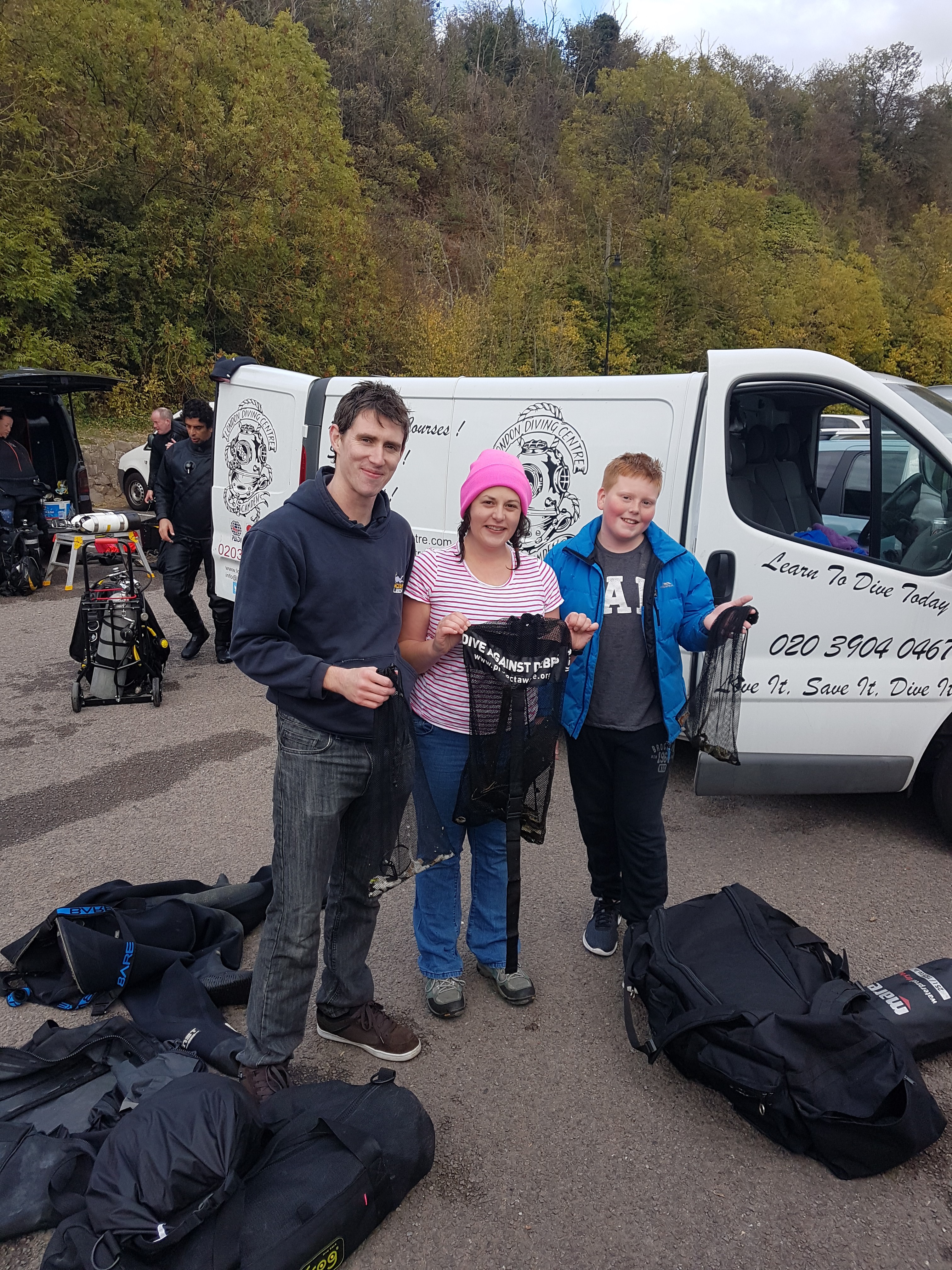Stoney Cove
30 September, 2018
- Team Leader
- Susannah Noble
- Number of Participants
- 3
- Total Debris Collected
- 1.5 kgs (measured)
52.543052842594, -1.2736266527917
Survey Information
- Location Name
- Stoney Cove
- Organization/Dive Centre
- Scuba Leeds
- Country
- United Kingdom
- Date
- 30 September, 2018
- Survey Duration
- 45 Minutes
- GPS Coordinates
- Latitude: 52.543052842594
Longitude: -1.2736266527917
- Weather Conditions
-
Sunny
- Survey Depth Range
- 5–8 meters
- Area Surveyed
- 1007 m2
- Dominant Substrate
- silt
- Ecosystem
- Quarry
- Wave Conditions
- Calm (glassy to rippled) for waves 0 – 0.1 meter high
Survey Photos
Debris Items Collected
| plastic materials collected | |
|---|---|
| Balls | 1 |
| Cups, Plates, Forks, Knives, Spoons (plastic) | 1 |
| Plastic Fragments | 23 |
| Cigarette Filters | 4 |
| Strapping Bands (plastic) | 2 |
| glass materials collected | |
|---|---|
| Glass & Ceramic Fragments | 5 |
| metal materials collected | |
|---|---|
| Cans: Food/juice, Other (tin) | 1 |
| Pipes & Rebar | 5 |
| Wire, Wire Mesh & Barbed Wire | 6 |
| Wrappers (foil/metal) | 1 |
| Metal Fragments | 2 |
| rubber materials collected | |
|---|---|
| Inner-tubes & Rubber Sheets | 1 |
| Rubber Bands | 1 |
| paper materials collected | |
|---|---|
| Paper, Cardboard Fragments | 28 |
| other materials collected | |
|---|---|
| Metal Springs | 2 |
| Hair Bobbles | 1 |
Additional Information
General diving training, a lot of the debris found appears to be related to scuba training (broken dive gear or plastic snapped off of equipment)
Plastic fragments from food consumed by the surface
Broken pieces of scuba equipment, like mask straps or snapped off pieces of plastic
Cable ties from diving equipment
Comments and Feedback
A quick debris dive completed after our day training - it was brilliant to see one of our younger divers getting involved and excited in completely a debris dive. A big thank you to Keegan for his help on the dive (and his little brother for also collecting some debris and putting in the bin when helping with shore cover - every bit helps). Stoney cove is a training dive quarry, and suffers from the debris left behind by divers (although unintentional, dives often leave behind more than just bubbles). We found broken plastic from diving masks, rubber straps, tape from cylinders, stickers from dive gear, springs from inside diving equipment, and cable ties). We also found a lot of paper fragments on this dive, possibly for training notes. Cigarette butts were found in the water, once again highlighting that these throw away parts of a cigarette do end up in our waters and cause a possible chocking harness to marine life. This is a great dive site and very popular, but a worry that if we are leaving behind debris from training debris, what are we leaving behind on pleasure dives around the world?

